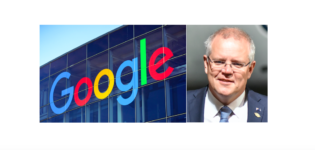Government vs Google: Will The Tech Giant Really Leave Australia?

The battle lines have been drawn. Google Search has threatened to leave Australia if the new media bargaining code is introduced. So what does the future hold for the search engine that controls 95% of the market?
The proposed law
The Treasury Laws Amendment (News Media and Digital Platforms Mandatory Bargaining Code) Bill 2020 was introduced into the House of Representatives in December last year.
It follows a 12-month review into Google and Facebook by the Australian Competition and Consumer Commission (ACCC), and is designed to force the digital media giants to negotiate with Australian media companies to pay for their content.
Facebook and Google have called the code ‘unworkable’ and have, over the past several months, used their digital presence to spruik their sides of the argument.
Google has gone so far as threatening to entirely shut down Search in Australia.
Caught in the middle are internet users in Australia; about 22 million of them. And many questions remain unanswered.
Concerns over data
If Google goes ahead with its threat to remove Search from Australia, then there are other search engine options available. However, at this stage, while it is likely that other products, such as GoogleMaps, GoogleDrive and Gmail will remain, exactly how the lack of search function could affect these is not entirely clear yet.
It’s an incredibly complex issue, but at the heart of it is user data. Like other tech companies, Google collects an incredible amount of information from those of us who use it, which it then uses to tailor our searches. Like within the algorithms that social media companies use, data is used to provide a ‘better user experience’.
The downside of this is that every time you search, or click an advertisement, you give away a little more about yourself and your preferences. And if you have signed up for a GMail account, then you will have given away other personal data too – like your name and birthdate.
The ACCC is highly concerned about the amount of data that Google and other tech companies collect “which go beyond the data which users actively provide when using the digital platform.” the ACCC has also highlighted the “length, complexity and ambiguity of online terms of service and privacy policies, including click-wrap agreements with take-it-or-leave-it terms,” as a problem.
Without a search engine in Australia, then the question remains whether all of this collected user data is still relevant to the functions of Google that may remain here? If not, then how this data is actually disposed of is an issue that must be addressed.
Corporate bullying?
Google accounts for 95 percent of all Australian internet searches and it’s search engine advertising revenue is worth about $4 billion a year, so it’s difficult to understand why it would want to forgo such a large local revenue source to take a stand against bargaining with media sources. Its threat to leave Australia could be just an idle one.
Or not.
The company does have a history of using its size and reach to get it’s own way.
In 2014, Spain passed a copyright law that would have required Google to pay news publishers for snippets appearing on Google News. In response, Google cut off its news service from the country, but search remained available.
In terms of the current issue with Australian media, Google has proposed it’s own solution, similar by the sounds of it, to what was proposed in Spain – a news showcase. Essentially, this would pay participating news organisations to give users access to some – but not all – paywalled articles. Users still need to subscribe directly to the news organisations to access everything.
But Australian media companies are fiercely opposed to the idea, simply because of Google’s position – essentially it is a monopoly – and could therefore make its own terms. In Denmark, when music publishers protested about the pitiful payments they were getting from having their music on Google’s paid YouTube Music service, Google simply banned them from the platform.
Google is also currently in the middle of a number of anti-competition, anti-trust suits in the USA. Late last year 40 states filed a lawsuit against Google alleging that it manipulates its search results to give its own products and services greater rankings over rivals — preventing Web users from seeing the best options for shopping, dining, travel and more. The lawsuit is the third competition case U.S. regulators have filed against Google.
What about Facebook?
As for Facebook, which has around 17 million active users per month nationally, the company has said that it won’t leave Australia, but would consider blocking links to news articles on Facebook.
This doesn’t seem to be a sensible solution either – it is essentially a form of censorship and a move which goes against the company’s mission, which according to Mark Zuckerberg is: “…To connect the world. We often think about this as connecting you with your friends and family — those who matter to you most. But this also means helping people connect with businesses, governments and other organisations in their lives as well.”
Facebook is, whether it chooses to acknowledge the fact or not, fast becoming a source of news. During the Covid-19 pandemic, social media usage has soared globally with many people turning to it for news and information because of its immediacy and accessibility.
Having already foreseen that Google and Facebook (and others) may attempt to exclude Australian media, the ACCC has drafted legislation so that if Australian members of the code are treated differently from news outlets that are not members, the platforms would be up for fines of at least $10m.
Both of the tech giants show no signs of backing down just yet, and nor does the Federal Government, which seems intent on ignoring the current threats and developing legislation which will make for a fairer playing field for Australian media companies.
The outcomes of the current debate before the Senate Committee, which involves national media representatives, global tech giants Google and Facebook and members of the senate, will be reported back to national Parliament on 12 February. As a result of that report, the legislation may be changed or tweaked, before it goes through the rigorous process of being ratified into law. It is only then that users will be able to better understand any impact.
Ultimately, most users are savvy enough to adapt to whatever changes come their way. It’s possible that making sweeping threats could actually backfire on Google and Facebook amidst growing concerns globally that these big tech companies wield way too much power.







